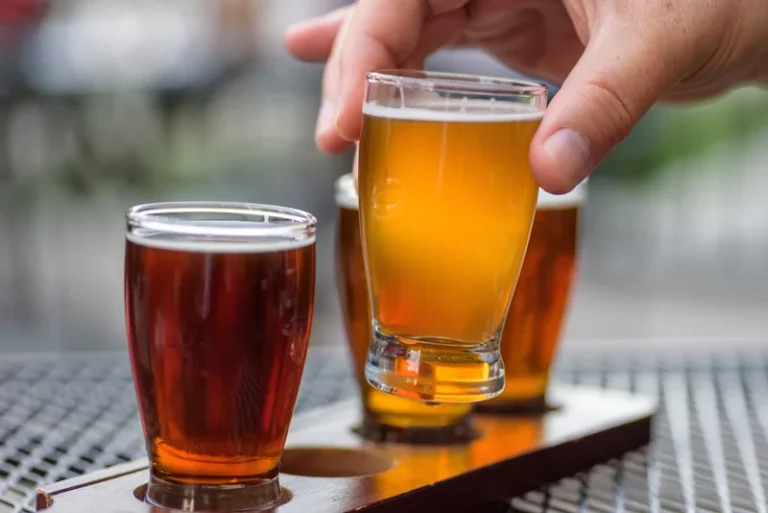Alcohol use disorder Symptoms and causes

The best way to reduce your risk is to keep your alcohol consumption low or consider non-alcoholic beverages as an alternative. Alcohol poisoning is usually caused by binge drinking, which is where you have a lot of alcohol in one drinking session. It can happen when you drink alcohol faster than your body can filter it out of your blood.
Support with drinking
People cannot treat severe alcohol intoxication — or alcohol poisoning — at home. If anyone shows signs of severe intoxication, contact emergency services immediately. These symptoms often occur in stages, depending on how intoxicated a person is.

Binge drinking
What is considered life threatening varies on the body’s tolerance level, reaction to alcohol, and amount of alcohol consumed, among other factors. It is best if their behavior has been observed while the subject is sober to establish a baseline. Several well-known criteria can be used to establish a probable diagnosis. Every time you drink alcohol, it’s up to your liver to break it down and filter it until it becomes less toxic for the body to eventually eliminate as waste.
Complications of alcohol poisoning
Alcohol use disorder is a pattern of alcohol use that involves problems controlling your drinking, being preoccupied with alcohol or continuing to use alcohol even when it causes problems. This disorder also involves having to drink more to get the same effect or having withdrawal symptoms when you rapidly decrease or stop drinking. Alcohol use disorder includes a level of drinking that’s sometimes called alcoholism.
- Learn about the signs and symptoms of alcohol use disorder here.
- When BAC reaches high levels, blackouts (gaps in memory), loss of consciousness (passing out), and death can occur.
- People typically require hospital treatment for an alcohol overdose so doctors can monitor their condition and administer any medications or fluids via IV.
Stages of alcohol poisoning
In fact, the smaller-bodied person may experience an alcohol overdose after drinking the same amount that a larger-bodied person can consume safely. An alcohol overdose, or alcohol poisoning, is one health problem that can result from too much alcohol consumption. Using alcohol with opioid pain relievers, such as oxycodone and morphine, https://ecosoberhouse.com/ or illicit opioids, such as heroin, is also a very dangerous combination. Like alcohol, these drugs suppress areas in the brain that control vital functions such as breathing. Ingesting alcohol and other drugs together intensifies their individual effects and could produce an overdose with even moderate amounts of alcohol.

Management and Treatment
Medical professionals may recommend additional treatment, such as medications and therapy, for someone who has experienced an alcohol overdose. A BAC level above 0.40% increases the risk of serious complications, including coma and death. Because denial is common, you may feel like you don’t have a problem with drinking.

The time it takes alcohol to both have an impact and subsequently leave your system can depend on many factors, such as your weight and how many drinks you’ve had within a given time. By Buddy TBuddy T is a writer and founding member of the Online Al-Anon Outreach Committee with decades of experience writing about alcoholism. Because he is a member of a support group that stresses the importance of anonymity at the public level, he does not use his photograph or his real name on this website.
Even when the person is unconscious or stops drinking, the stomach and intestines continue to release alcohol into the bloodstream, and the level of alcohol in the body continues to rise. Generally, once your blood alcohol alcohol poisoning concentration (BAC) is 0.40 percent or over, it’s dangerous territory. If someone is experiencing any of the above symptoms during or after drinking alcohol, a person should call 911 or get them emergency medical care.
- If a person does not want to stop drinking or is not yet ready to quit, there are still ways they can stay safe while drinking.
- Although young people are most likely to engage in binge drinking, deaths from alcohol poisoning usually involve men between the ages of 35 and 64, according to the CDC.
- The less alcohol you drink, the lower your risk for these health effects, including several types of cancer.
About Mayo Clinic
Drinking too much too quickly can affect breathing, heart rate, body temperature and gag reflex. Signs of an overdose include confusion, unconsciousness, vomiting, and more. A person should seek emergency medical care to treat an alcohol overdose.

For example, some craft beers may have four times the amount of alcohol that’s in a regular beer. Be aware of the alcohol content of what you’re drinking and adjust how much you drink based on this knowledge. If you think that someone has alcohol poisoning, get medical attention right away. For example, you might have more than 12 fluid ounces of beer in your glass, and it might be stronger than 5 percent, in which case it’d take fewer drinks to get you more drunk. A BAC above 0.40% has a risk of serious complications, including coma and death, according to MedlinePlus, a service of the National Library of Medicine. We are dedicated to making alcoholism treatment accessible to every person in need and accept many forms of insurance or can help you facilitate payment arrangements.

